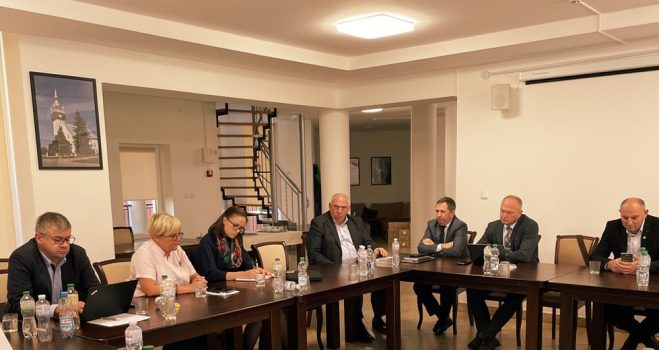Martina Wasserloos-Strunk, President of the World Communion of Reformed Churches (WCRC) Europe, recently completed a significant visit to Hungary and Transcarpathia, where she met with church leaders and community representatives to discuss the pressing challenges facing these regions. Her journey focused on supporting the Reformed Church in Hungary (RCH) and the Reformed Church in Transcarpathia (RCT), especially as they cope with the ongoing effects of the war in Ukraine and seek to strengthen ecumenical collaboration across Europe.
This visit marked a pivotal moment in understanding how the conflict has impacted church communities and reinforced the importance of international solidarity and open dialogue.
In Budapest, Wasserloos-Strunk held a productive meeting with Rev. Szabina Stojka, head of the Roma Ministry of the Hungarian Reformed Church Aid (HRCA). Rev. Stojka presented the ministry’s efforts toward Hungarian-Roma reconciliation, with a focus on creating inclusive communities where both Roma and majority Hungarians can thrive. The discussion highlighted the practical, theological framework guiding this work, emphasizing the importance of forgiveness, diversity, and inclusion at the community level.
The WCRC President also met with Bishop József Steinbach, Ministerial President of the Synod of the RCH, where they discussed the support received from WCRC Europe and the continued challenges caused by the conflict in Ukraine. Bishop Steinbach expressed concern about the potential drafting of pastors and stressed the importance of ongoing dialogue between churches to address varying perspectives and contexts across Europe.
Following her time in Budapest, Wasserloos-Strunk traveled to Transcarpathia from October 11 to 13. During her visit, she engaged with representatives of the Reformed Church in Transcarpathia (RCT), including Bishop Zán-Fábián, deans, and lay leaders, to gain insight into the church’s ongoing efforts to support its communities despite the hardships caused by war. Rising costs of food and essential goods, heightened military taxes, and anxiety over potential clergy conscriptions were among the challenges discussed. Despite these difficulties, the RCT continues to provide vital social services, including distributing over 1,000 back-to-school packages for children, a hopeful sign amid adversity.
During her visit, Wasserloos-Strunk also toured several key sites in Nagydobrony, including a reformed lyceum and a children’s home. Church leaders shared the pressing financial and operational concerns they face due to the war, such as whether to adjust teachers’ salaries amid rising costs. Despite these struggles, the sense of community and dedication remained strong.
On October 13, Wasserloos-Strunk joined a worship service in Beregszász, where she expressed her gratitude to the local congregation for their warm welcome. Following the service, she participated in a women’s conference organized by the Ung presbytery, where she addressed the challenges and opportunities for women in leadership within the church. She noted the significance of women leading WCRC Europe and WCRC globally, with Rev. Najla Kassab serving as the organization’s first female president.
The visit underscored the importance of international solidarity with the RCH and RCT as they navigate the difficulties posed by the war. Wasserloos-Strunk’s meetings reinforced the role of ecumenical cooperation and dialogue as essential tools in addressing the varied challenges faced by Reformed communities across Europe.
This news release is based on an article originally published by Emma Perry on 21/10/2024. To read the full article, visit the link.


